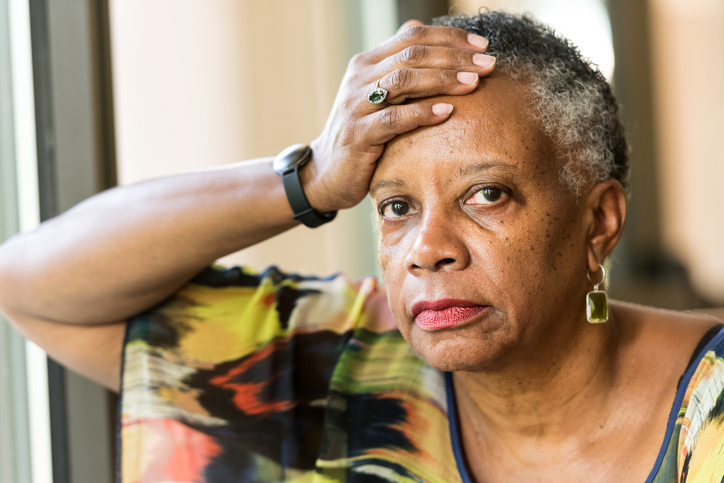
Source: Juanmonino / Getty
As a child, one of my grandmothers was undeniably partial to my younger brother. There was nothing covert about it. It was glaring. It was loud. It was hurtful. Before I was even old enough to formulate the words, I noticed a difference. My five-year-old self tried to grasp hold of any tiny bit of logic my kindergarten brain could to rationalize the stark difference in treatment. For a while, I used the two-year age gap that existed between my brother and me. I’m older. He doesn’t know any better. She has to baby him because he’s the youngest. Sadly, as the years continued to roll by, I couldn’t use flawed logic to protect my heart anymore. I had to face the music. For whatever reason, she loved him more than me and so I withdrew, thus causing the preferential treatment to escalate.
The other adults in my life noticed too. My parents, my aunts, even my other grandparents all made attempts, at some point or another, to explain my grandmother’s behavior to her. She never denied it. Sometimes she blamed me for not being as pushy as my brother. Other times, she made excuses followed by promises to do better. Reluctantly, I’d come back around only for the same wound to be reopened over and over again. Somewhere around middle school, as a means of protecting myself, I shut down completely in regard to that relationship. It was as though that unique connection that is usually shared between grandmother and granddaughter was irreparably broken. Like a shot of novocaine, that decade of silent rejection numbed me to our relationship. I was polite and respectful, but that was the extent of our exchanges. I accepted it and I made peace with it. I wish that I could say the trauma ended there, but it didn’t.
Despite this constant rejection that went on for a decade or longer, it was almost as though the moment that I withdrew, she instantly took notice. It was as if me unsuccessfully vying for her attention, affection, and consideration served some sick purpose in her life. Suddenly, I, a child, was forced to carry the burden of maintaining a relationship with an adult who in reality didn’t actually want a relationship with me. Every few months, there was drama.
“Oh, Jazmine hasn’t been by to see mommy.”
“Oh, you know that girl didn’t buy her anything for Mother’s Day?”
“Jazmine doesn’t love mommy.”
I was traumatized. I was conflicted. I was infuriated. All the while, there was never any attempt to fix the problem that had broken our relationship in the first place. For a while, my parents played along in an effort to keep the peace. Then one day, somewhere near my 16th birthday, something clicked for them. My father told me that they wouldn’t be forcing me to do anything concerning that relationship anymore and that any gestures would be left up to my discretion.
Without even realizing it, my dad taught me a powerful lesson about tolerating abuse and mistreatment in relationships: you don’t. It doesn’t matter what the family tie is. If someone continues to inflict emotional trauma on you, you step back and love that person from a distance. You are no one’s punching bag. Children are vulnerable in so many ways that we fail to acknowledge. As parents, it is our responsibility to protect our children from abuse that is both physical and emotional in nature. If a relative’s personal struggles or personality defects are causing them to inflict pain on your children, then perhaps you should cut back on the access said relative has to your kids. If you don’t advocate for your child’s emotional well being or model what healthy relationships look like, who will?









